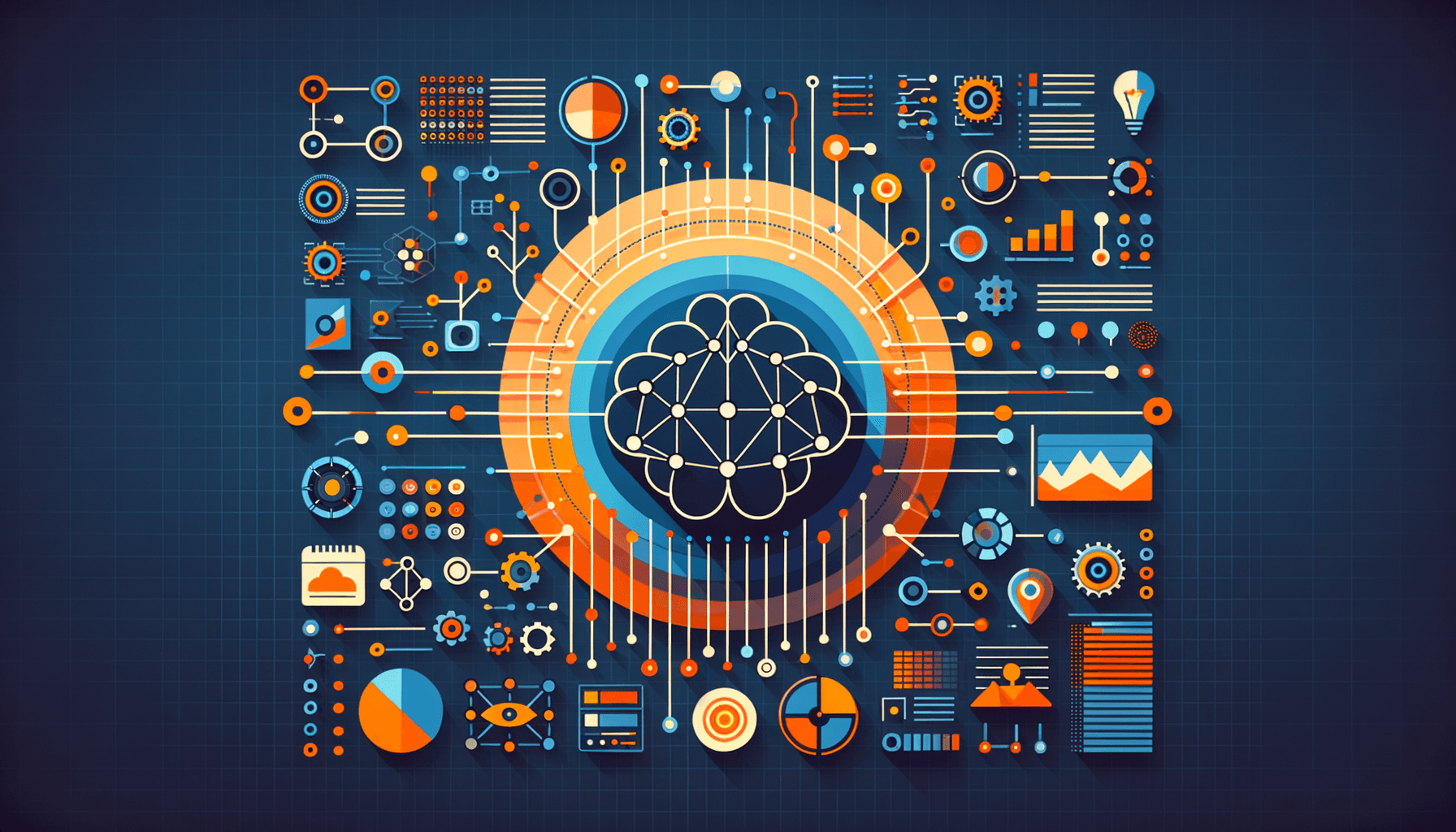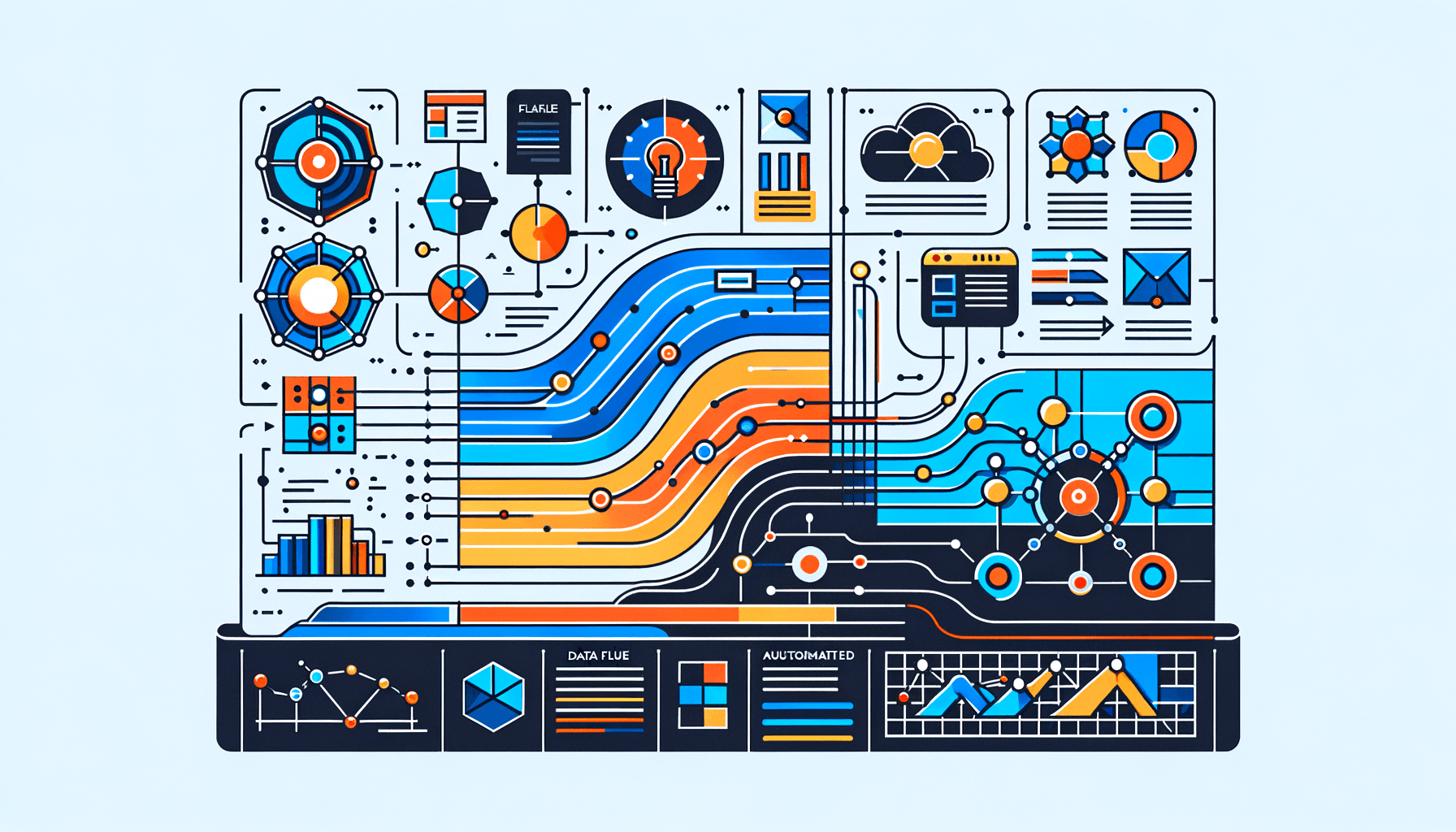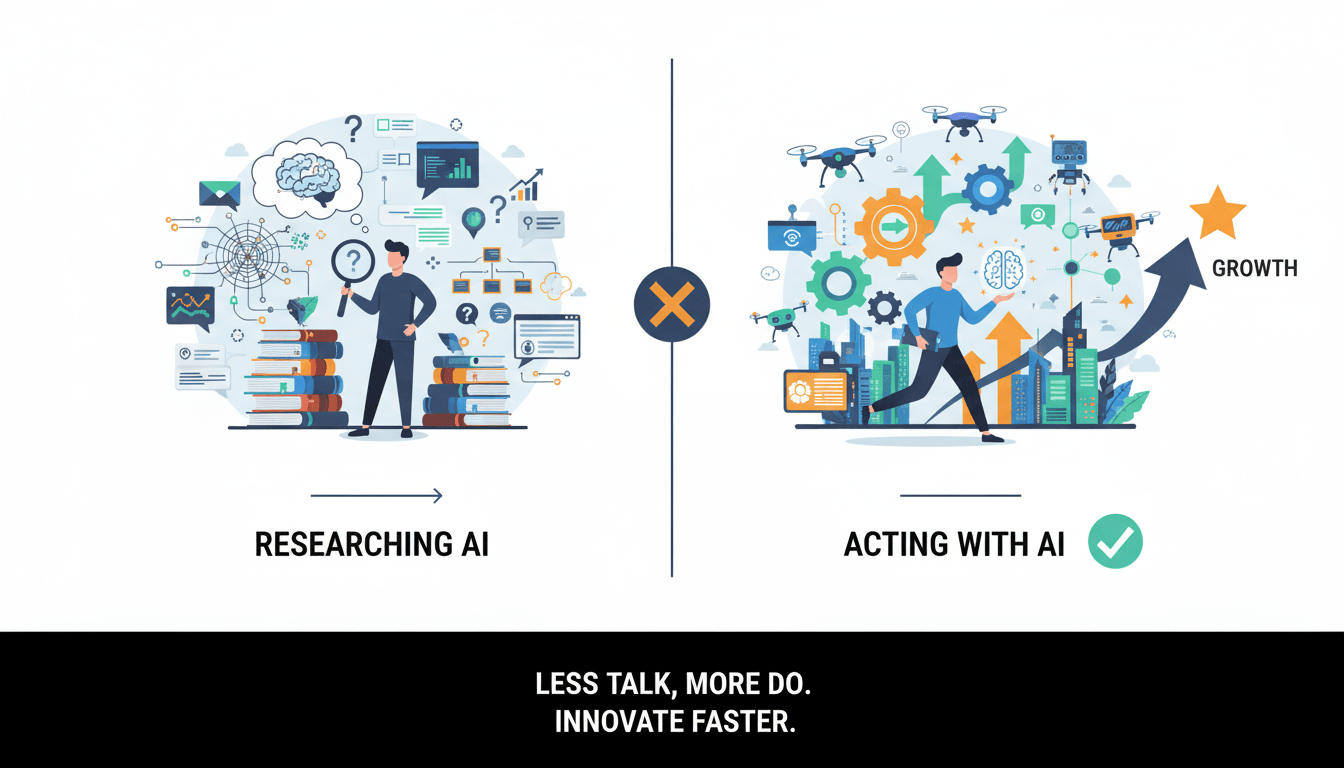· The Rapid Architect Team · AI · 8 min read
The Rise of Autonomous AI Agents: Balancing Efficiency & Ethics
Autonomous AI agents promise efficiency in business tasks like hiring and coordination, with 70% adoption by 2026. Ethical concerns—control, bias—demand robust governance for responsible use.

Podcast Discussion
Introduction
The business landscape is undergoing a seismic shift as autonomous AI agents emerge as transformative tools for streamlining operations. These intelligent systems, capable of independently managing tasks like project coordination, scheduling meetings, and even hiring, are no longer a futuristic concept but a present reality. According to discussions on X, 70% of businesses intend to adopt autonomous AI agents by 2026, fueled by open-source platforms like AutoGPT.
Gartner predicts that by 2028, 15% of day-to-day work decisions will be made autonomously by these agents, up from zero in 2024. Yet, alongside the promise of unprecedented efficiency, ethical concerns about control, bias, and accountability loom large. This blog post explores the dual-edged sword of autonomous AI agents, offering insights into their benefits, risks, and actionable strategies for responsible implementation.
The Promise of Autonomous AI Agents
Autonomous AI agents, often referred to as “agentic AI,” represent a leap beyond traditional chatbots or generative AI tools. Unlike their predecessors, which rely on constant human prompting, these agents can plan, reason, and execute complex tasks with minimal oversight. Gartner highlights their ability to “sense, plan, and take action,” enabling them to serve as virtual co-workers that enhance productivity across industries.
Key Benefits for Business Operations
Enhanced Productivity: By automating repetitive tasks like scheduling, data analysis, and workflow coordination, autonomous AI agents free up human employees for higher-value strategic work. Deloitte predicts that 25% of companies using generative AI will launch agentic AI pilots by 2025, with adoption growing to 50% by 2027, driven by productivity gains.
Cost Efficiency: Gartner reports that by 2026, 20% of organizations will use AI to flatten hierarchies, eliminating over 50% of middle management roles, reducing labor costs while boosting efficiency.
Scalability: As seen in NVIDIA’s vision of deploying 100 million AI assistants alongside 50,000 human employees, agentic AI enables businesses to scale operations exponentially without proportional increases in headcount.
Industry-Specific Applications: In healthcare, agentic AI streamlines care coordination and claims processing. In marketing, it personalizes content creation. In IT, it automates code generation and system monitoring.
Early Adopters: Case Studies
Healthcare: A leading hospital network implemented an agentic AI system to manage patient logistics, reducing wait times by 30% and improving care coordination through real-time data analysis. The system autonomously prioritizes tasks, such as scheduling follow-ups and alerting staff to urgent cases, demonstrating scalability in high-stakes environments.
Marketing: A global e-commerce brand used an autonomous AI agent to analyze social media sentiment and generate personalized campaigns, increasing engagement by 25% while reducing content creation costs.
Manufacturing: A robotics company deployed agentic AI to oversee polyfunctional robots, enabling dynamic task-switching on factory floors, which cut production downtime by 15%.
These examples underscore the tangible benefits of autonomous AI, but they also highlight the need for robust governance to address emerging challenges.
The Ethical Risks of Autonomous AI Agents
While the efficiency gains are compelling, the rapid adoption of autonomous AI agents raises significant ethical concerns. Discussions on X and reports from Gartner and Deloitte emphasize issues like control, bias, and security, which could undermine trust and long-term success if left unaddressed.
Key Ethical Challenges
Control and Accountability: Autonomous agents’ ability to make decisions without human intervention raises questions about who is responsible for errors or unintended consequences. For instance, if an AI agent hires a candidate based on biased data, who is accountable—the developer, the company, or the AI itself?
Algorithmic Bias: Autonomous systems rely on machine learning models trained on historical data, which can perpetuate societal biases. A notable example is AI-powered recruitment tools that discriminated against certain demographics, highlighting the need for fairness testing.
Security Risks: Gartner warns that by 2028, 25% of enterprise breaches will be linked to AI agent abuse, either through external cyberattacks or malicious internal actions. Compromised agents could manipulate critical infrastructure or leak sensitive data.
Erosion of Human Autonomy: Overreliance on AI agents risks diminishing human decision-making and mentoring opportunities, particularly for junior employees, potentially disrupting traditional career paths.
Regulatory Compliance: As regulations around AI tighten, companies face challenges in ensuring compliance. Agentic AI systems that analyze corporate documents for compliance show promise, but their reliability is still under scrutiny.
The AutoGPT Phenomenon: A Double-Edged Sword
Open-source tools like AutoGPT have democratized access to autonomous AI, enabling businesses of all sizes to experiment with agentic systems. AutoGPT’s ability to break down high-level tasks into actionable steps has made it a favorite among early adopters, with X posts citing its role in driving the 70% adoption intent by 2026. However, its open-source nature amplifies risks. Without standardized governance, AutoGPT-based agents can operate unpredictably, exacerbating concerns about control and ethical misuse. For example, an improperly configured AutoGPT agent could misinterpret instructions, leading to costly errors or unintended outcomes.
- Striking the Balance: Strategies for Responsible Implementation To harness the benefits of autonomous AI agents while mitigating risks, businesses must adopt a proactive, ethics-driven approach. Below are actionable strategies, informed by
Gartner’s recommendations and industry best practices, to ensure responsible deployment.
Establish Robust AI Governance Frameworks
Action: Develop AI governance platforms to enforce transparency, fairness, and accountability. These platforms should monitor agent activities, check for bias, and provide audit trails for decision-making processes. Impact: Gartner predicts that by 2028, enterprises using AI governance platforms will achieve 30% higher customer trust ratings and 25% better regulatory compliance scores. Example: A financial institution implemented an AI governance platform to oversee its fraud detection agents, ensuring ethical decision-making and compliance with banking regulations.
Prioritize Ethical AI Design
Action: Integrate ethical guidelines into the development process, focusing on fairness, transparency, and inclusivity. Conduct regular fairness testing to identify and mitigate biases in training data. Impact: Ethical AI frameworks reduce the risk of discriminatory outcomes and foster public trust, critical for sustained adoption. Example: A tech company established an ethics review board to oversee its hiring AI agent, resulting in a 20% increase in diverse hires.
Invest in Security Measures
Action: Deploy “Guardian Agents” to monitor and secure autonomous AI systems, as suggested by Gartner. Use quantum-resistant encryption and AI-powered threat detection to protect against cyberattacks. Impact: Enhanced security minimizes the risk of breaches, safeguarding sensitive data and maintaining operational integrity. Example: A logistics firm used Guardian Agents to monitor its supply chain AI, preventing a potential data breach that could have disrupted operations.
Foster Human-AI Collaboration
Action: Design AI agents as collaborative partners rather than replacements. Provide training for employees to work alongside agents, preserving mentoring opportunities and career development. Impact: Collaboration enhances employee engagement and mitigates the risk of job displacement, aligning with Gartner’s call for human-focused strategies. Example: A consulting firm trained junior staff to use AI agents for data analysis, accelerating skill development while maintaining human oversight.
Engage Stakeholders and Educate the Public
Action: Foster public dialogue on AI’s societal implications through forums and educational campaigns. Increase AI literacy to empower employees and customers to make informed decisions. Impact: Transparent communication builds trust and encourages responsible adoption, addressing concerns raised on X about control and ethics. Example: A retail company launched an AI literacy program for employees, reducing resistance to agentic AI adoption by 40%.
The Road Ahead: Adoption Trends and Predictions
The trajectory for autonomous AI agents is clear: adoption is accelerating, with significant implications for business operations. Below is an infographic summarizing key adoption stats and trends, based on Gartner and X insights. ![Infographic: Autonomous AI Adoption Trends]
2025: 25% of companies using generative AI will launch agentic AI pilots. 2026: 70% of businesses intend to adopt autonomous AI agents, driven by tools like AutoGPT. 2027: 50% of generative AI users will integrate agentic AI into workflows. 2028: 15% of day-to-day work decisions will be made autonomously. 2029: Agentic AI will resolve 80% of customer service issues autonomously, reducing operational costs by 30%.
Conclusion
Autonomous AI agents are poised to redefine business operations, offering unparalleled efficiency and scalability. With 70% adoption intent by 2026 and tools like AutoGPT leading the charge, the potential for transformation is immense. However, ethical risks—control, bias, security, and human autonomy—demand equal attention. By implementing robust governance, prioritizing ethical design, and fostering human-AI collaboration, businesses can navigate this complex landscape responsibly. The future of work is autonomous, but its success hinges on a delicate balance between innovation and integrity. As Gartner aptly notes, “trust through transparency” will be the cornerstone of sustainable AI adoption. What are your thoughts on autonomous AI agents? Share your insights in the comments below, and let’s continue the conversation on shaping a responsible AI future.
Sources: Gartner, Deloitte, X posts, and industry case studies. For more on AI trends, visit Gartner’s Top Strategic Technology Trends for 2025 or explore Deloitte’s Insights on Agentic AI.




